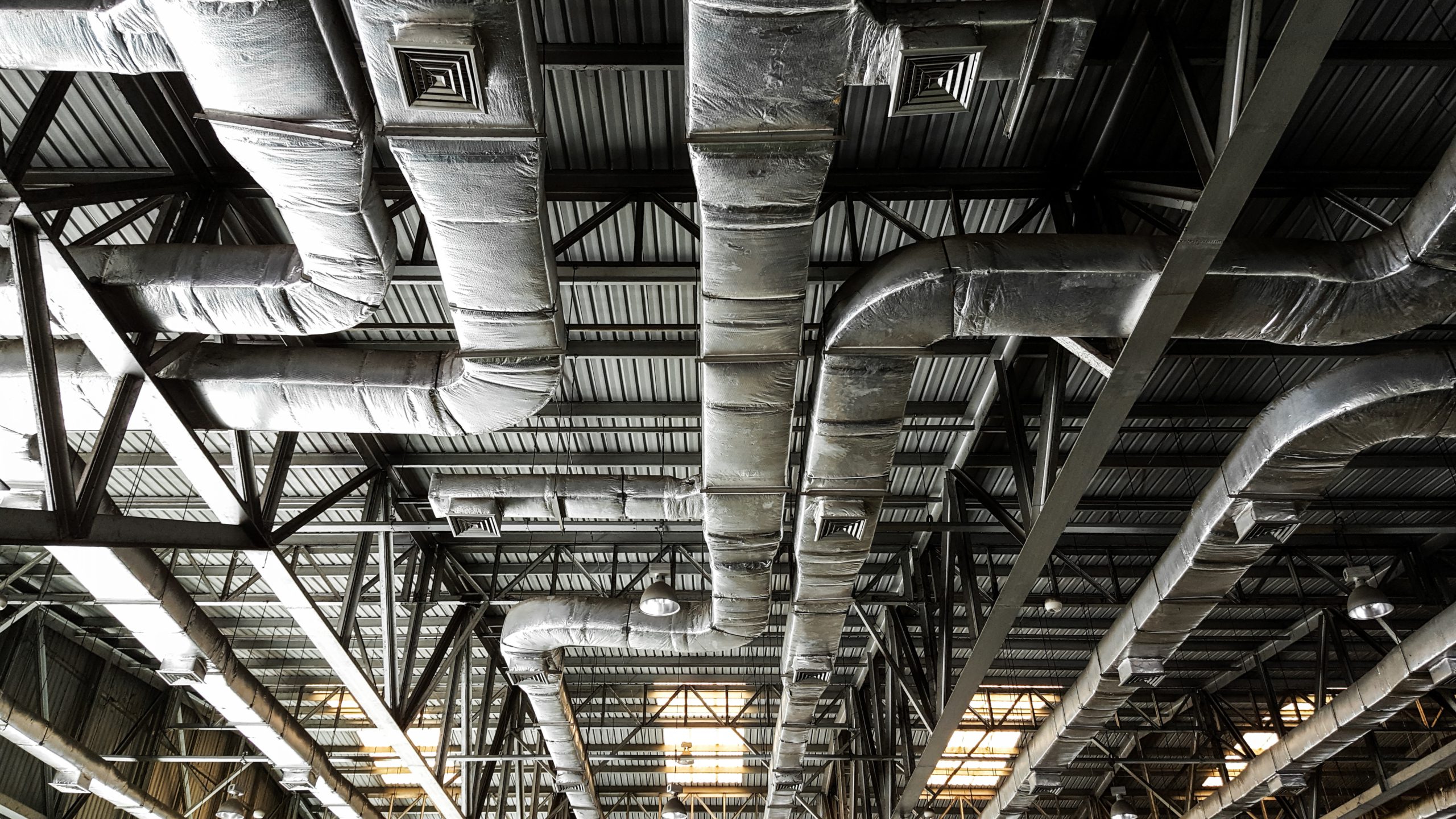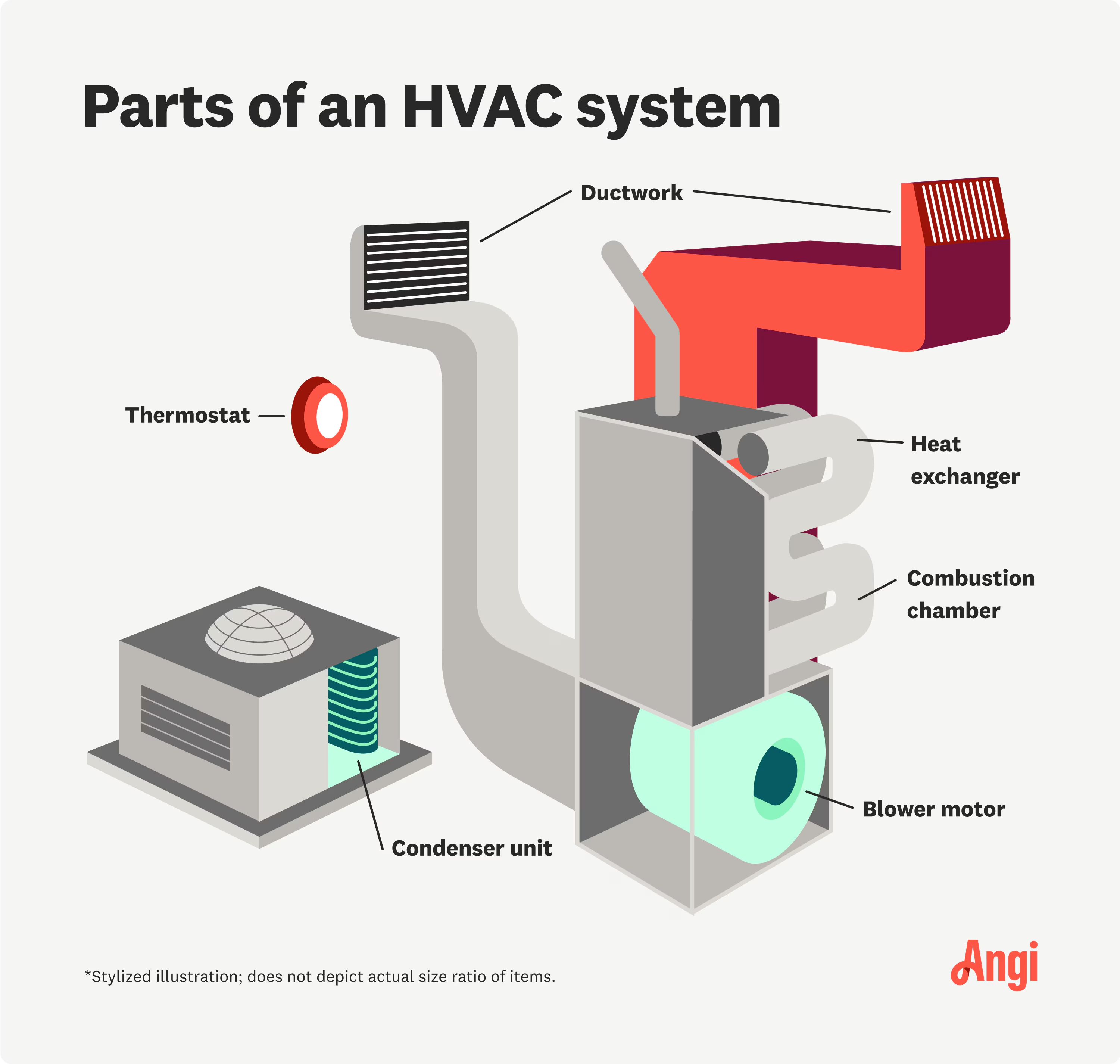An Extensive Appearance at Cooling And Heating Providers and Their Impact on Energy Performance and Cost Cost Savings
With technical advancements like wise thermostats and high-efficiency elements, the potential for maximizing system efficiency is huge. As we check out the elaborate relationship in between HVAC systems and operational expenses, including the shift towards eco friendly choices, the question occurs: how can these approaches be properly applied to take full advantage of both financial and eco-friendly benefits?

Significance of Cooling And Heating Systems
HVAC systems are an essential part of modern buildings, playing a crucial role in keeping comfy and healthy and balanced indoor atmospheres. These systems, incorporating air flow, home heating, and air conditioning, are necessary for managing temperature level, humidity, and air quality, thereby making sure the well-being of passengers. Efficient cooling and heating systems contribute considerably to creating an optimum indoor climate, which is crucial for both residential and industrial spaces.
In commercial structures, cooling and heating systems are integral to giving a effective and risk-free setting. By managing interior environment problems, these systems assist stop the growth of mold and the spread of airborne contaminants, thus protecting the wellness of clients and workers. In addition, in household settings, a/c systems enhance living conditions by using consistent thermal comfort and boosting indoor air high quality, which is vital for general wellness.
Moreover, the design and maintenance of cooling and heating systems have a direct influence on power consumption and functional prices. Correctly made and preserved systems can considerably lower energy usage, bring about decreased energy expenses and a smaller carbon impact. The performance of these systems hence plays a crucial role in promoting sustainability and energy conservation within buildings, highlighting their relevance in the modern-day architectural landscape.
Developments in Heating And Cooling Innovation
Innovation in HVAC innovation is revolutionizing the method buildings take care of interior climates, ushering in a brand-new age of effectiveness and control. Recent innovations have actually focused on optimizing energy consumption while enhancing user convenience. One notable advancement is the combination of clever thermostats, which utilize fabricated knowledge to learn occupancy patterns and adjust temperatures appropriately, reducing unneeded energy use.
Variable Refrigerant Flow (VRF) systems stand for another significant jump ahead. These systems permit accurate temperature control in various zones of a structure, enhancing convenience and reducing power waste. VRF technology is particularly useful for large business spaces, supplying flexibility and scalability.
Furthermore, the development of Web of Things (IoT) devices has transformed heating and cooling systems into interconnected networks qualified of real-time data collection and analysis. This connection enables anticipating maintenance, ensuring systems operate at peak performance and lessening unanticipated downtime.
Moreover, improvements in products and style, such as using high-efficiency coils and compressors, have actually improved total system efficiency - Heating Contractor. The fostering of eco-friendly cooling agents also highlights the industry's commitment to sustainability
These technical developments are essential in decreasing functional costs and environmental impact, establishing brand-new standards for building environment monitoring.
Cooling And Heating Upkeep and Efficiency
Making sure optimal efficiency of heating and cooling systems extends beyond technical innovations; it also pivots on efficient upkeep methods. Routine upkeep is vital for sustaining effectiveness, reducing energy intake, and extending the life expectancy of cooling and heating systems. The primary goal is to guarantee that all elements work at their peak capacity, thus minimizing power wastefulness and preserving constant indoor comfort degrees.
Routine maintenance tasks, such as cleansing or changing air shafer heating and cooling filters, examining cooling agent levels, and checking ductwork for leaks, are essential for protecting against unnecessary pressure on the system. Dirty or clogged up filters can block air movement, triggering the system to function tougher and consume more energy. Furthermore, inadequate cooling agent degrees can decrease cooling down efficiency, leading to greater operational expenses.
Additionally, periodic assessments by qualified professionals can identify prospective concerns prior to they escalate right into costly repairs or system failings. These evaluations commonly include inspecting electrical connections, adjusting thermostats, and guaranteeing the general integrity of the cooling and heating system. By addressing small problems early, businesses and property owners can avoid unanticipated malfunctions and improve power effectiveness.
Cost-Effective Cooling And Heating Solutions
For those seeking to get one of the most out of their air, home heating, and air flow conditioning systems without damaging the bank, exploring cost-effective heating and cooling solutions can make a significant distinction. One instant procedure is to spend in programmable thermostats, which allow individuals to establish certain temperature levels for various times of the day, maximizing energy usage and reducing unneeded intake. By automating temperature level adjustments, house owners can attain substantial savings on energy expenses.
Normal maintenance is an additional essential component of cost-effective HVAC monitoring. Making certain that filters are cleaned up or replaced frequently, ductwork is my link sealed, and systems are serviced by professionals can avoid costly repair work and improve system longevity. Preventive upkeep not only preserves system effectiveness however likewise helps in preventing unforeseen malfunctions that can lead to costly emergency repair work.
Furthermore, retrofitting existing systems with energy-efficient elements, such as variable rate electric motors or high-efficiency compressors, can be a sensible financial investment. These upgrades improve functional performance, lower power usage, and can typically be carried out at a portion of the price of a complete system substitute.
Environmental Effect Decrease
Decreasing the ecological impact of Cooling and heating systems is important in today's quest of sustainable living. Heating and cooling systems are substantial factors to energy usage, accounting for nearly 40% of energy usage in commercial structures.
Technological innovations in heating and cooling layout and operation, including the combination of clever thermostats and energy-efficient heatpump, are essential in decreasing carbon footprints. These technologies allow for maximized energy use, lessening waste and improving general system efficiency. Furthermore, embracing regular upkeep techniques makes sure heating and cooling systems run at peak efficiency, more stopping unneeded energy intake.
Furthermore, the usage of eco-friendly refrigerants is crucial, as traditional cooling agents, like CFCs and HCFCs, have been eliminated as a result of their ozone-depleting properties. Modern options, such as hydrofluoroolefins (HFOs), deal minimized ecological risks, lining up with international ecological methods. By welcoming these lasting methods, cooling and heating services can play a transformative function in minimizing ecological effects, advertising power performance, and fostering a much more lasting future.
Verdict

Additionally, the design and upkeep of Cooling and look at this site heating systems have a direct influence on energy usage and functional costs. Routine upkeep is vital for sustaining effectiveness, lowering energy intake, and extending the life span of Heating and cooling systems. HVAC systems are considerable contributors to power consumption, accounting for virtually 40% of energy usage in business structures. Furthermore, adopting routine upkeep practices makes sure Cooling and heating systems run at peak efficiency, more stopping unneeded power intake.
The transition to ecologically pleasant A/c systems better reduces functional prices and advertises sustainability. (Heating Contractor)